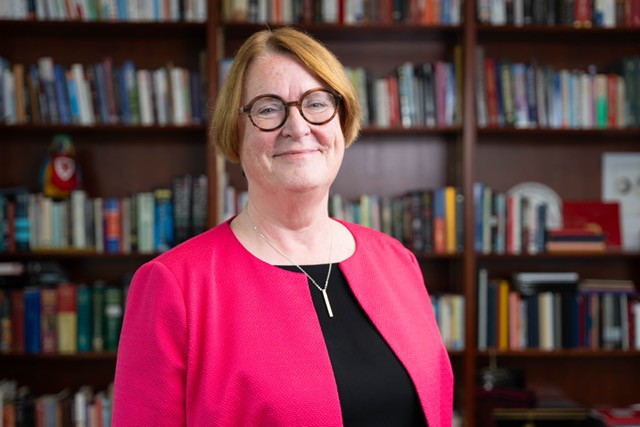Liz Saville-Roberts MP examines the constitutional challenges presented by Assisted Dying legislation in our devolved system.
Parliamentary politicians make laws on life and death matters. For this generation of new Westminster MPs, the ethical dilemma of Assisted Dying legislation is proving to be the toughest issue of their parliamentary careers. How to balance terminally ill adults’ right to autonomy over the end of their lives while simultaneously protecting people from the risk of abuse and coercion? How to create a law that can be applied with humanity and consistency in a landscape of underfunded palliative care, an NHS culture of cure or discard, a societal revulsion at the mention of death and the prospect of multiple challenges in court?
Yet this is a challenge we must not shun. Medical interventions keep people alive for longer than ever while the quality of life shuffles away. Palliative care can reduce pain and suffering for many diseases, but not for all. There are people killing themselves in lonely desperation or travelling abroad to assisted dying facilities, afraid all the while that their families will face criminal charges and the possibility of up to 14 years in prison under Suicide Act 1961 for assisting or encouraging their deaths.
For this generation of new Westminster MPs, the ethical dilemma of Assisted Dying legislation is proving to be the toughest issue of their parliamentary careers.
The vast majority of people in Wales and England believe this to be wrong and want the law to change. An opinion research poll in March 2024 asked 10,897 people across the UK for their views, and 75% were in favour of making it lawful for dying adults to be able to seek assisted dying. Support was high across people holding political views across a wide spectrum: Labour (77%), Conservative (78%), Plaid Cymru (84%), Liberal Democrat (77%), SNP (83%), Green (79%) and Reform (78%).
Legislation to make assisted dying lawful is in its closing stages at the Tynwald in the Isle of Man and the States Assembly in Jersey, and is progressing in Scotland. Around 300 million people around the world have legal access to assisted dying.
At the close of November last year, the Private Members’ Terminally Ill Adults (End of Life) bill passed its second reading in the House of Commons with a majority of 55 MPs. From the day it was published, it was evident that the bill would encroach on matters relating to health and social care which have been devolved in Wales for over a quarter of a century. It was also evident that the scant procedural conventions of a private members’ bill could not guarantee that questions relating to devolution would even be asked, let alone answered. Government bills undergo a process of theoretical stress-testing with Green Papers, White Papers and the expectation of civil service engagement across the relevant parliaments of the UK prior to being published in draft form before First Reading in either the Chamber of the House of Commons or the House of Lords. Meanwhile a private members’ bill is hammered together by clerks and launched onto the choppy seas of parliamentary debate without the caulking of consultation.
Discussions and debates that drive Wales forward.
Join Wales’ leading independent think tank.
After second reading, a bill passes to consideration in committee. The bill’s sponsor MP, Kim Leadbeater, is to be congratulated for ensuring a place on the committee for a member intent on raising Wales-specific legislative concerns alongside the contentious challenges of drafting robust law with respect to fundamental ethical issues. I raised the issue of Wales in my speech at second reading and accordingly was offered a place alongside 23 other MPs from Labour, Conservative and Liberal Democrat parties on the bill committee to hear evidence from 50 witnesses and undertake line by line scrutiny of over 350 amendments. These included representatives from UK institutions as well as jurisdictions in Australia and the USA where assisted dying is available. We also heard evidence from families, whose experiences were heartrending.
It did not prove straightforward to secure witnesses from Wales to tease apart the extra bureaucratic thicket that complicates this legislation as regards devolved and reserved matters. Officers of the Senedd were approached but recused themselves after initial discussion. The retiring Chief Medical Officer of Wales, Frank Atherton, also declined to attend despite having given evidence in Westminster to the Tobacco and Vaping Bill committee in the previous month. It was immensely useful that Prof Emyr Lewis, emeritus professor of the Department of Law at Aberystwyth University, was prepared to appear before the committee and give advice as an expert in constitutional law.
In the event of Westminster proving intransigent, the constitutional rights of the Senedd are little more than the right to be consulted: LCMs withheld have so far been LCMs ignored.
Prof Lewis’s evidence acknowledged that much of the bill sought to modify criminal offences relating to suicide and was thus outside the legislative competence of the Senedd. Nonetheless he also put on record the need to be aware of the Sewell Convention with reference to Government of Wales legislation which recognises that the UK Parliament will not normally legislate with regard to devolved matters without the Senedd’s consent.
The need to consider the implications for Welsh devolution is stark in Clause 32 of the Terminally Ill Adults Bill, which enables the Secretary of State for Health in England to intervene directly on health provisions in order to put the legislation into effect. This assumes over-reach by the UK Government, a power grab even. It should not be tolerated by Welsh Government, and it would evidently be best for this defect to be remedied during the legislative process. As Prof Lewis said in his evidence: ‘It seems to me unarguable that that is a matter both on which the Welsh Government ought to be consulted and which would require legislative consent from the Senedd.’
He also identified clauses relating to actions specified to the Chief Medical Officer of Wales as areas which would require additional legislative consent motions given that the CMO is answerable to Welsh ministers. While it is not evident who leads on ensuring that this happens in the context of a private members’ bill, Welsh Government should be stating loud and clear that failure to establish clear demarcation of responsibility between Westminster and Cardiff is an affront to their authority. After all, we have our own specific body of law in relation to adult safeguarding, including the Social Services and Well-being (Wales) Act 2014. Regional Safeguarding Boards in Wales differ in a number of ways to the equivalent arrangements in England. We also have an Older People’s Commissioner and Future Generations Commissioner, whose views should be sought on any legislation likely to have such an immense impact on the people of Wales.
Innovative. Informed. Independent.
Your support can help us make Wales better.
In the event of Westminster proving intransigent, the constitutional rights of the Senedd are little more than the right to be consulted: LCMs withheld have so far been LCMs ignored. Welsh Labour will set a dangerous precedent if they don’t establish boundaries in their relationship with Labour in government in London. This is happening, of course, in the context of Westminster Labour refusing to repeal the Internal Market Act 2020, which was described by Mark Drakeford, when he was First Minister, as a ‘smash and grab’ on devolution.
Hanging over the bill committee’s consideration of the need for legislative consent in Wales is the result of a debate on Julie Morgan MS’s assisted dying motion in October 2024, which was voted down by a majority of Senedd members including First Minister Eluned Morgan and Health Minister Jeremy Miles. While the wording of the motion was not identical to the title of the Terminally Ill Adults (End of Life) Bill, the result was clearly an indication in principle of the present Senedd’s view even if, legally and constitutionally, it has no binding consequences.
My amendments seek to establish exactly who is responsible when there is over-reach into devolved competencies by explicitly stating on the face of the bill that Welsh Health Ministers will be given equivalent powers as English Health Secretaries where relevant.
Prof Lewis posed the question of how to respect a democratic vote held in Cardiff, and proposed possible solutions such as considering whether Wales should have different commencement provisions.
My amendments seek to establish exactly who is responsible when there is over-reach into devolved competencies by explicitly stating on the face of the bill that Welsh Health Ministers will be given equivalent powers as English Health Secretaries where relevant. By clarifying which responsibilities lie in Wales, Welsh Ministers might be encouraged to grasp the opportunity to exercise the full gamut of their present powers and ensure LCMs as necessary, demand Wales-specific consultation and impact assessment and ensure a vote on the floor of the Senedd about commencement in Wales if the bill is enacted in Westminster.
To close, it is once again evident that the jagged edge of devolution between reserved criminal law and law relating to devolved matters is both widening and becoming more challenging for governments in London and Cardiff alike to navigate, even when the Labour Party happen to be in power in both capital cities. While the rational conclusion is devolution of justice in its entirety to our national legislature rather than the present flimsy patchwork of legal make-do-and-mend, in the meantime we have a duty of care to bring forward legislation which is as robust as possible within our present competencies and which shows respect to our democratic institutions.
All articles published on the welsh agenda are subject to IWA’s disclaimer. If you want to support our work tackling Wales’ key challenges, consider becoming a member.





